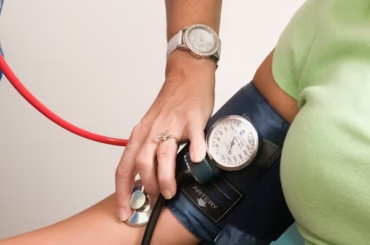Key Takeaways
- Constipation happens when stool moves too slowly through the colon. Simple changes can help move things.
- Eating more fiber, drinking plenty of water, exercising and relaxing your gut go a very long way.
- Home remedies and specific foods can relieve and prevent the “stuck-up” feeling but persistent issues require a doctor.
- Use the following 19 remedies as a toolkit. Pick a few, stay consistent, and your digestive system will thank you.
Introduction
Let’s face it: being constipated is not fun. You feel heavy, bloated, maybe a little cranky. But you’re not doomed to suffer. With some smart home-remedies and the right foods, you can shake things up literally. In this article we’ll explore 19 effective remedies to get rid of constipation naturally. This is sometimes called “irregular bowel movements”, “hard stools”, or “sluggish gut”. We’ll keep it simple, short sentences because who wants long lectures when your gut is unhappy? and add a dash of humor to keep things moving.
So, grab a glass of water, loosen your belt a notch, and let’s dive in.
Why Do You Get Constipated?
Constipation is one of the most common digestive issues in the world, affecting millions every day. But before you jump to quick fixes, it’s important to understand why you get constipated in the first place.
Let’s look at the real reasons behind that sluggish gut and how to stop it from happening again.
1. Low-Fiber Diet — The No1 Culprit
- A low-fiber diet is one of the biggest reasons for constipation.
- Fiber acts like a broom that sweeps your intestines clean. It adds bulk to your stool and helps it move easily through your colon.
- When you eat mostly refined carbs like white bread, pizza, pastries, or fried snacks, your stool becomes dry and hard.
How to Fix: Add more fruits, vegetables, beans, lentils, oats, and whole grains to your plate.

2. Not Drinking Enough Water
- Constipation often happens because your body is dehydrated.
- When there’s not enough water, your colon absorbs moisture from waste, making stool dry and difficult to pass.
- It’s like trying to push dry cement through a pipe.
How to Fix: Drink 8–10 glasses of water daily. Try warm water in the morning to kick start your digestion.
3. Stress and Anxiety
- Believe it or not, stress can clog your gut. Your digestive system and brain talk constantly that’s why it’s called the gut-brain axis.
- When you’re anxious or under pressure, your gut muscles slow down, causing bloating and constipation.
How to Fix: Try meditation, breathing exercises, or a quick walk outdoors. Relaxed mind = relaxed intestines.
4. Certain Medications
- Some medicines come with an unwanted side effect of constipation.
- Painkillers especially opioids, iron supplements, antidepressants, and some blood pressure meds can make your stool harder.
How to Fix: Never stop medication on your own. Ask your doctor about alternatives or balance things with fiber and hydration.
5. Irregular Eating and Sleeping Habits
- Your gut loves routine. If you skip breakfast, eat late at night, or sleep at odd hours, your digestive clock gets confused.
- This irregular rhythm affects colon movement and stool consistency.
How to Fix: Try eating meals at regular times, sleep 7–8 hours, and have a morning “gut routine.”
6. Too Much Processed or Fatty Food
- Greasy, low-fiber foods, burgers, fries, cheese, and fast food can make your digestive system sluggish.
- They move slowly through your gut and often cause hard stool.
How to Fix: Limit junk food. Add fiber-rich sides like salad, veggies, or fruit smoothies to balance your meals.
7. Hormonal Changes
- Hormones play a major role in bowel movement. Women often experience constipation during pregnancy, PMS, or menopause due to rising progesterone levels.
- Thyroid issues can also slow down metabolism, which means slower digestion.
How to Fix: Stay hydrated, keep moving, and eat fiber-rich foods. If symptoms persist, check hormone or thyroid levels.
19 Best Home Remedies & Foods for Constipation
1. Drink Plenty of Water
Water is your friend. Without enough fluid, the stool becomes hard and stuck. Aim for at least 1.5–2 liters per day (adjust for your body and climate). Warm water in the morning can help “wake up” your gut.
2. Increase Dietary Fiber
Fiber adds bulk and softens the stool.
Good sources: whole grains (brown rice, oats), beans, lentils, vegetables, and fruits. When you increase fiber, do it gradually otherwise you might get the opposite effect like bloating.
3. Eat Prunes and Dried Fruits
Prunes and dried apricots and figs are traditional go-to’s. They contain natural sugars sorbitol that draw water into the colon and promote movement.
4. Go for Probiotic Foods
Yogurt, kefir, fermented veggies can help balance gut bacteria. A healthy microbiome supports regular bowel movements.
5. Try Flaxseeds or Chia Seeds
Ground flaxseed or chia provide fiber and mucilage gel-like substance that helps stool move. Add a teaspoon or two to your breakfast, smoothies, or yogurt.
6. Use Olive Oil or Healthy Fats
Healthy fats lubricate the intestines. A tablespoon of olive oil in the morning on an empty stomach has been used traditionally to get things better.
7. Sip Warm Liquids
Warm drinks help stimulate digestion. A warm herbal tea like ginger or peppermint or simply warm water with lemon may kick-start your gut.
8. Regular Exercise / Movement
Even a 20-minute walk after a meal helps. Movement stimulates colon muscle activity. Try yoga poses that support digestion. Do wind-relieving poses or child’s poses.
9. Abdominal Massage
Gently massaging your abdomen in a clockwise direction can help move the stool along. Some physiotherapy-led videos show how to do it. This nice little technique: lie down, knees bent, and massage from the lower right side up and around.
10. Use Foot Stool / Proper Toilet Posture
Squatting or using a small footstool to elevate your feet changes the angle of your rectum and makes it easier to go. Believe it or not, posture matters.

11. Eat High-Fiber Veggies Regularly
Veggies like broccoli, spinach, kale, and carrots are fibrous and rich in nutrients. Add them daily in your routine as raw, steamed or sautéed.
12. Include Whole Grains
Swap white bread, white rice and refined cereals for brown rice, whole-grain bread, oats. They pack more fiber and keep your gut happy.
13. Fruits with Sorbitol / Natural Laxative Qualities
Apples, pears, grapes, raspberries and prunes contain sorbitol — a natural sugar alcohol that draws water into a colon.
14. Mild Laxative Foods: Flax, Psyllium Husk
Psyllium husk is a fiber supplement that can help bulk up stools. But it increases slowly and drink plenty of water.
15. Limit Low-Fiber, Highly Processed Foods
Too much meat, cheese, fast foods, fried foods = low fiber and slower gut transit. If you’re back-up, consider reducing these.
16. Develop a Routine
Try to go to the toilet around the same time each day; after breakfast is ideal. Don’t rush. Give yourself 5-10 minutes, feet supported, in a relaxed posture.
17. Don’t Ignore the Urge
If you feel the urge to poop — go. Holding it repeatedly weakens the signals your body sends and makes things worse.
18. Try Natural Stimulators: Coffee, Warm Lemon Water
Coffee can stimulate the colon movement for many people so if it suits you, that’s one quick tool. Warm lemon water in the morning also helps.
19. Manage Stress & Sleep Right
High stress slows digestion; hormones get mixed up; gut motility suffers. Make sure you get quality sleep, practice relaxation like breathing, yoga, meditation. Lower stress is equals to better gut vibe.
How to Put It All Together
- Pick at least 3-4 of the above and stick with them consistently for a week.
- Track your bowel movements: frequency, ease, consistency.
- If you improve, keep going. If you don’t maybe, you need to increase fiber slowly or check for underlying issues.
- Don’t overload too much fiber and insufficient water too fast. Do one change at a time.
- Use the posture & massage tricks especially if you feel “jammed”.
- Be patient things improve in 1–2 days or it may take a few weeks.
Conclusion
Getting rid of constipation isn’t about one magic pill. It’s about small, consistent changes: what you eat, how you move, how you use your toilet time, and how well you treat your gut and body. These 19 remedies above cover all the major bases fiber, fluids, posture, movement, habits.
Your gut wants to move. You just need to give it the right cues. Think of it like a car: you need fuel fiber, water, exercise, and a proper posture for it to roll smoothly. Skip one part and you stand.
Laugh a little, relax, and make changes. If the problem persists beyond a few weeks don’t ignore it. Your gut and you deserve better.
Here’s to happier digestion and smoother days ahead.
FAQs
How long is it too long to be constipated?
If you haven’t had a bowel movement for 3 days and stool is hard, or you’re straining a lot, it’s time to act. If you go 1–2 weeks without improvement, see a doctor. Persistent constipation may signal a deeper issue.
Can laxatives be used instead of home remedies?
Yes, but treat them as short-term tools not the long-term fix. Over-use of laxatives may weaken normal bowel function. follow above 19 remedies to get rid of constipation as they are more sustainable.
I tried fiber + water but still constipated. What next?
Good, you tried that. Now add movement walk or stretch, abdominal massage, proper posture, and possibly pro-biotic foods. Also review medications, stress levels, and sleep. If there is still no improvement in a week or two, consult a health-care professional; there could be other causes (thyroid, gut motility disorder, blockages).





